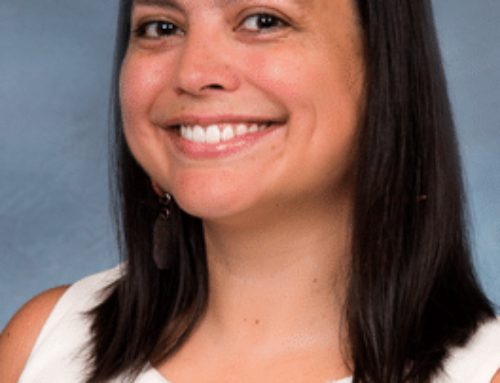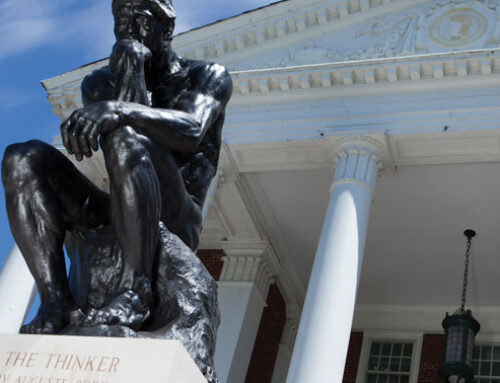By Simon Isham–
Jose Antonio Vargas, a Pulitzer Prize-winning journalist, author and advocate for immigration reform and LGBT rights, was asked to speak on the “intersection of identity”, the theme for this year’s U of L Pride Week. He delivered his speech on the evening of Wednesday, Oct. 3 in the Student Activities Center.
Brian Buford, who is the Director of the Office of LGBTQ Services on campus and who introduced Vargas, described the speech as “fabulous.” Buford stated that Vargas was surprisingly easy to book for a speaking engagement, but that “two weeks after we booked him, he appeared on the cover of Time Magazine. I suspect he would have been much harder to book if we had tried to do it then.”
Vargas’ keynote was peppered with supplementary multimedia elements such as videos and still photographs of his life and work.
One particularly telling video dealt with Vargas’ recent trip to Birmingham, Ala., where a modern civil rights movement is still evolving. The words “Is this Alabama?” appeared on the screen. The shot cut to Vargas sitting at a café table adjacent to that of a man and woman, both of whose faces had been digitally blurred to mask their identities.
The scene broke in the midst of a spectacle that had already been going on for some time. The man was yelling in a thick southern accent, bellowing to Vargas rather than at him, his profanity-ridden opinions on undocumented immigrants to the U.S.
After listening to the belligerent rant for a minute, Vargas calmly asked, “And what if I told you I am one of them?”
Without missing a beat, the man replied, “You don’t have your papers? The you need to get the f— out.”
Vargas learned that he was undocumented at the age of 16, when he went to his local California Department of Motor Vehicles to register for a learner’s permit. When he approached the counter to hand the clerk his identification, she informed him that it was a forgery, and warned him not to return. At first, he thought it was a joke, but the clerk was serious.
On the way back to his house, he went over what he knew about himself: he had been born in the Philippines and had lived there until age 12. In an attempt to provide him with a better quality of life, his mother had sent him to live with his grandparents in Silicon Valley in 1993.
Upon arriving at home, he confronted his grandfather about the situation. Rather than engaging Vargas with the compassionate demeanor that Vargas had anticipated after having been kept out of the loop, his grandfather chose to address the situation by interrogating his grandson as to why he would have taken such a big risk in the first place.
But Vargas wasn’t done coming out, wasn’t done “taking risks”; there were portions of his being which had yet to surface.
“I just couldn’t live with two lies,” said Vargas.
Just one year after the incident at the DMV, at 17, Vargas’ publically admitted that he is gay for the first time, after his class had watched the Oscar-winning documentary “The Times of Harvey Milk.”
One quote in particular stood out to Vargas from that film. On Nov. 17, 1977, Milk made a tape recording in which he said, “If a bullet should enter my brain, let that bullet destroy every closet door.” Almost one year later, on Nov. 27, 1978, Milk was assassinated in his office.
At the conclusion of the film, the class entered into a period of discussion about the film when Vargas raised his hand, blurted out a few comments on the picture and then came out to his class. “Then I ran out in the hallway (to calm down),” said Vargas.
His grandfather, working for minimum wage, had saved up $4,000 for the day when Vargas married a woman and started a family. The fact that Vargas was uninterested in the lifestyle that his grandfather had hoped to prepare him for caused some tension between the two of them.
“He kicked me out of the house,” said Vargas. “But sometimes the ones you love the most are the ones who hurt you the most.”
These early events contributed, years later, to Vargas’ decision to found DefineAmerican.com, a site built to help undocumented immigrants tell their stories and to take responsibility for their identities.
Vargas has also made a pet project out of purging the phrase “illegal immigrants” from the journalistic lexicon. Although he was unsuccessful in convincing the powers that be at the Associated Press and the New York Times, he did receive affirmative responses from NBC, as well as several college newspapers, including the Louisville Cardinal.
“… I am not illegal,” Vargas said. “Because human beings are not, and cannot be, illegal.”
Although his passionate coverage of immigration issues makes his articles likely to go viral, he tries his best to remain true to the cause for which he is fighting. Becoming a celebrity was simply not on his to-do list. To illustrate his point, he held up a copy of the Oct. 3 LEO Weekly, which features a dominant photo of Vargas and the headline, “Out of the Shadows.”
“I’m a little uncomfortable with this,” he said, “I told the guy who interviewed me not to make my photo this big. I don’t want this to become ‘The Jose Show’.”
Vargas also recognized that no matter how well known his face becomes, he and other undocumented immigrants could not win their fight alone; they would need support from American citizens.
He concluded his thoughts by encouraging his audience “to become a part of the conversation.”
Katie Keeling, an freshman who is considering a major in fine art, is a resident at U of L’s LGBTQ-themed Rustin Community, said: “It’s a lot easier to be accepting of undocumented immigrants when you hear their stories and realize that it’s not as simple as we (might want to) think it is…We (at Rustin) live by nonviolence principles, and you can tell that Jose (Vargas) has made a lot of progress by using nonviolence principles. He reaches a lot of people through the media, not through violence.”
The Office of LGBT Services also hosted an after-party at Amicí Café, where the discussion continued. Any who attended were able to meet Vargas face-to-face and ask any questions that they had not had answered.







